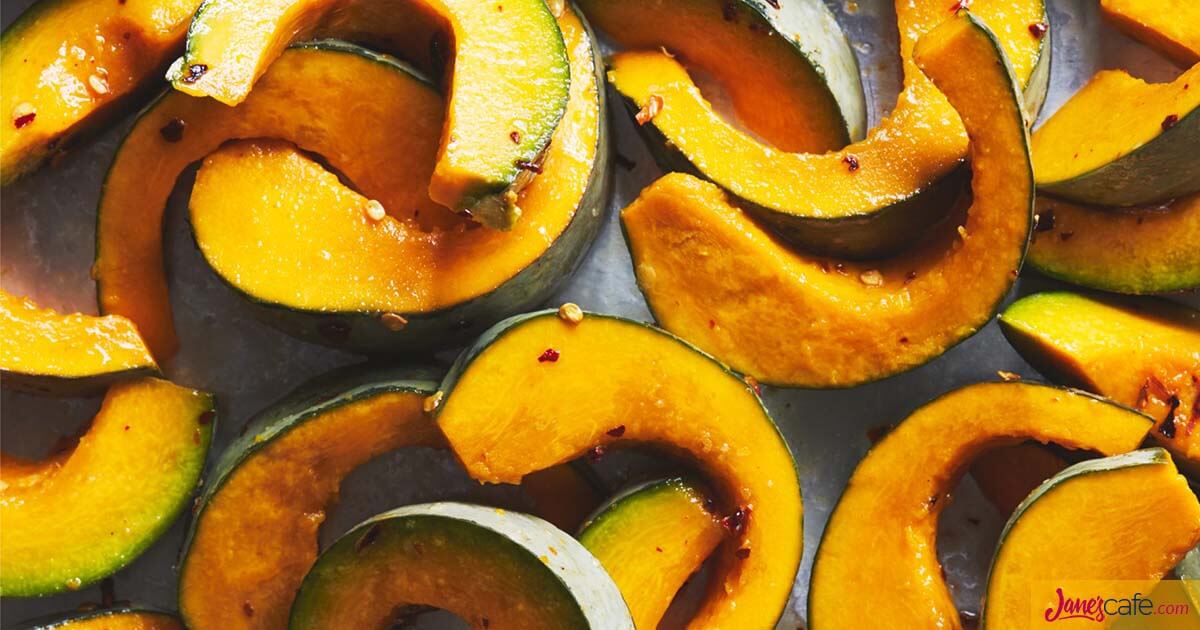
Butternut squash is not only good for you, but it’s also celebrated for its versatility and nutty, sweet flavor. Technically a fruit, butternut squash is often thought of as a vegetable. It makes an excellent addition to many savory and sweet recipes and has many culinary uses.
Because it’s power-packed with antioxidants, fiber, minerals, and vitamins, butternut squash is definitely good for you. Read on to learn more about butternut squash including adding it to your diet, health benefits, and nutrition.
Low In Calories, Rich In Nutrients, Butternut Squash Is Good For You
This winter squash is commonly baked or roasted, although you can eat it raw. With this in mind, one cup of cooked butternut squash provides:
- Calories: 82
- Carbs: 22 grams
- Protein: 2 grams
- Fiber: 7 grams
- Vitamin A: 457% of the Reference Daily Intake (RDI)
- Vitamin C: 52% of the RDI
- Vitamin E: 13% of the RDI
- Thiamine (B1): 10% of the RDI
- Niacin (B3): 10% of the RDI
- Pyridoxine (B6): 13% of the RDI
- Folate (B9): 10% of the RDI
- Magnesium: 15% of the RDI
- Potassium: 17% of the RDI
- Manganese: 18% of the RDI
Not only is this squash low in calories, but it’s also loaded with important nutrients. In addition to the minerals and vitamins listed above, it’s also a good source of copper, calcium, phosphorous, and iron.
May Decrease Disease Risk
Butternut squash is an abundant source of powerful antioxidants, including beta-carotene, vitamin E, and vitamin C. Antioxidants help reduce inflammation, slow or prevent cellular damage, which may reduce your risk of several chronic diseases. For example, cancer, heart disease, and mental decline.
Possibly Aid Weight Loss
One cup of cooked butternut squash has only 83 calories and provides 7 grams of filling fiber. Consequently, it’s an excellent choice if you want to lose excess weight and body fat. It contains both insoluble and soluble fiber. In particular, soluble fiber has been associated with fat loss and been shown to reduce appetite. This is important when you’re trying to control your calorie intake.
Many studies have found that a higher dietary fiber intake promotes weight loss and reduces body fat.
How To Add It To Your Diet
Not only is butternut squash good for you, but you can improve your overall health by adding it to your diet. Because it’s a versatile ingredient, it pairs well with a wide range of flavors from spicy to sweet.
Given these points, here are a few ideas for incorporating butternut squash into your dishes:
- Cook it and add to pasta dishes or use it pureed as a pasta sauce.
- Mash cooked butternut squash with salt, milk, and cinnamon for a creamy side dish.
- Eat it roasted alongside eggs for a hearty breakfast.
- Use it pureed in place of pumpkin when making pies or tarts.
- Add caramelized butternut squash to quiches and frittatas.
- Instead of potatoes, use it in curries.
Bottom line, including butternut squash a part of a balanced diet os good for you, delicious, and boosts your health.
Visit Jane’s Cafe for all types of healthy fresh fruits and vegetables. You can also order online for delivery!











Leave a Reply